Intro
Discover 5 ways low blood pressure affects health, including dizziness, fatigue, and nutrient deficiencies, and learn how to manage hypotension symptoms naturally with lifestyle changes and home remedies.
Low blood pressure, also known as hypotension, is a condition where the blood pressure in the arteries is lower than normal. This can lead to inadequate blood flow to organs and tissues, causing a range of symptoms. While high blood pressure is often seen as a major health concern, low blood pressure can also have significant effects on overall health and well-being. In this article, we will explore five ways low blood pressure can impact the body and discuss ways to manage and prevent this condition.
Low blood pressure can be caused by a variety of factors, including dehydration, blood loss, certain medications, and underlying medical conditions. It can also be a symptom of an underlying condition, such as anemia, diabetes, or heart disease. Understanding the causes and effects of low blood pressure is crucial for maintaining good health and preventing complications. By recognizing the signs and symptoms of low blood pressure and taking steps to manage it, individuals can reduce their risk of developing related health problems.
For many people, low blood pressure may not seem like a significant health concern. However, it can have serious consequences, particularly if left untreated. Low blood pressure can lead to dizziness, lightheadedness, and fainting, which can increase the risk of falls and injuries. Additionally, low blood pressure can reduce blood flow to vital organs, such as the brain, heart, and kidneys, which can lead to organ damage and other complications. By understanding the effects of low blood pressure and taking steps to manage it, individuals can reduce their risk of developing related health problems and maintain overall health and well-being.
Causes and Risk Factors of Low Blood Pressure
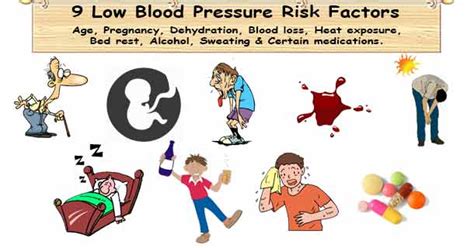
Dehydration and Blood Loss
Dehydration and blood loss are two of the most common causes of low blood pressure. Dehydration occurs when the body loses more fluids than it takes in, causing a drop in blood volume. This can happen due to a variety of factors, including vomiting, diarrhea, fever, and excessive sweating. Blood loss, either due to injury or surgery, can also lead to low blood pressure. In severe cases, blood loss can cause shock, which is a life-threatening condition that requires immediate medical attention.Medications and Underlying Medical Conditions
Certain medications, such as diuretics and beta blockers, can also lower blood pressure. Diuretics, for example, help the body get rid of excess fluid by increasing urine production. Beta blockers, on the other hand, slow the heart rate and reduce the force of the heart's contractions. Underlying medical conditions, such as anemia, diabetes, and heart disease, can also contribute to low blood pressure. Anemia, for example, can cause a drop in blood pressure due to a lack of red blood cells. Diabetes can also lead to low blood pressure, particularly if left untreated.Signs and Symptoms of Low Blood Pressure
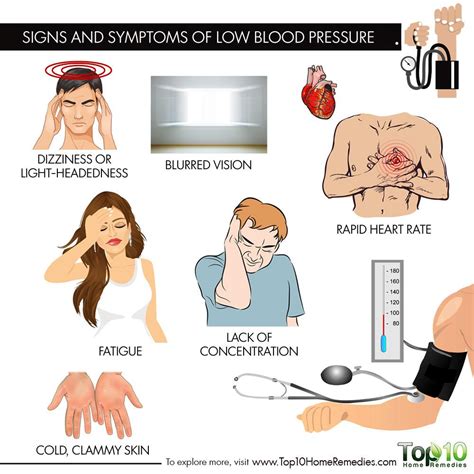
Dizziness and Lightheadedness
Dizziness and lightheadedness are two of the most common symptoms of low blood pressure. These symptoms can occur when the brain does not receive enough blood flow, causing a feeling of spinning or floating. Dizziness and lightheadedness can increase the risk of falls and injuries, particularly in older adults. In severe cases, dizziness and lightheadedness can cause fainting, which can lead to head injuries and other complications.Fatigue and Weakness
Fatigue and weakness are also common symptoms of low blood pressure. These symptoms can occur when the body's organs and tissues do not receive enough oxygen and nutrients. Fatigue and weakness can make it difficult to perform daily activities, such as work, exercise, and household chores. In severe cases, fatigue and weakness can cause confusion, disorientation, and even loss of consciousness.Diagnosis and Treatment of Low Blood Pressure
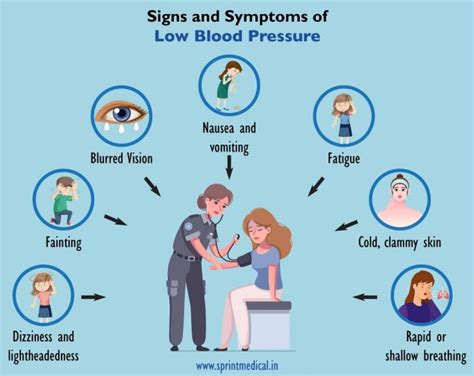
Increasing Fluid Intake
Increasing fluid intake is often the first line of treatment for low blood pressure. Drinking plenty of water and other fluids can help increase blood volume and improve blood flow to the body's organs and tissues. It is also important to avoid caffeinated and carbonated beverages, which can exacerbate dehydration. In severe cases, intravenous fluids may be necessary to rapidly increase blood volume.Adjusting Medications
Adjusting medications is also an important part of treating low blood pressure. Certain medications, such as diuretics and beta blockers, can lower blood pressure and worsen symptoms. The doctor may need to adjust the dosage or switch to a different medication to manage low blood pressure. In some cases, the doctor may also prescribe medications to increase blood pressure, such as fludrocortisone.Managing and Preventing Low Blood Pressure
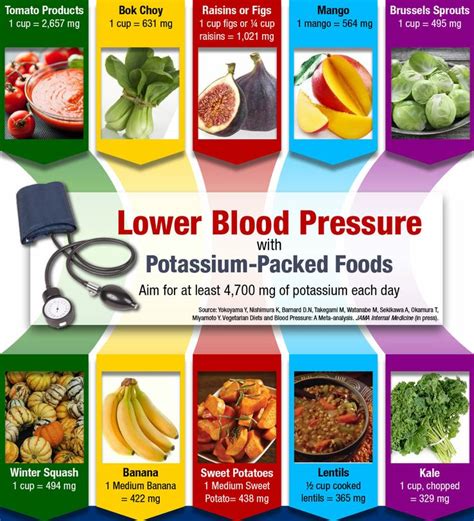
Lifestyle Changes
Lifestyle changes can play an important role in managing and preventing low blood pressure. Drinking plenty of water, for example, can help increase blood volume and improve blood flow to the body's organs and tissues. Eating a healthy diet that includes plenty of fruits, vegetables, and whole grains can also help manage low blood pressure. Avoiding certain medications, such as diuretics and beta blockers, can also help prevent low blood pressure.Monitoring Blood Pressure
Monitoring blood pressure regularly is also important for managing and preventing low blood pressure. This can involve checking blood pressure at home with a blood pressure monitor or visiting the doctor regularly for check-ups. If symptoms worsen or persist, it is essential to seek medical attention to prevent complications.Complications of Low Blood Pressure
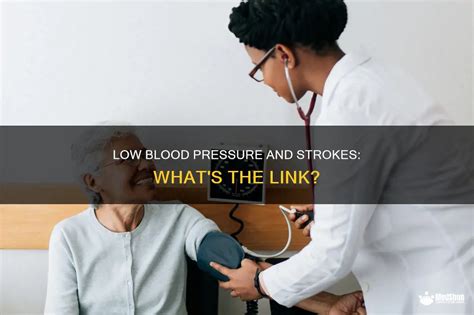
Organ Damage
Organ damage is a potential complication of low blood pressure. When the body's organs and tissues do not receive enough oxygen and nutrients, they can become damaged or diseased. The brain, for example, can become damaged due to a lack of oxygen, leading to confusion, disorientation, and even loss of consciousness. The heart can also become damaged, leading to heart failure and other complications.Falls and Injuries
Falls and injuries are also potential complications of low blood pressure. Dizziness, lightheadedness, and fainting can increase the risk of falls, particularly in older adults. Falls can lead to head injuries, broken bones, and other complications, which can be severe and even life-threatening.What are the symptoms of low blood pressure?
+The symptoms of low blood pressure can include dizziness, lightheadedness, fainting, fatigue, weakness, and nausea.
What are the causes of low blood pressure?
+The causes of low blood pressure can include dehydration, blood loss, certain medications, and underlying medical conditions, such as anemia, diabetes, and heart disease.
How is low blood pressure diagnosed?
+Low blood pressure is typically diagnosed with a physical examination and medical history. The doctor may also perform tests, such as blood tests and electrocardiograms, to rule out underlying medical conditions.
How is low blood pressure treated?
+Treatment for low blood pressure depends on the underlying cause and severity of the condition. It may involve increasing fluid intake, adjusting medications, or treating underlying medical conditions.
Can low blood pressure be prevented?
+Yes, low blood pressure can be prevented by drinking plenty of water, eating a healthy diet, avoiding certain medications, and monitoring blood pressure regularly.
In conclusion, low blood pressure is a condition that can have significant effects on overall health and well-being. By understanding the causes, symptoms, and treatment options for low blood pressure, individuals can take steps to manage and prevent this condition. If you are experiencing symptoms of low blood pressure, it is essential to seek medical attention to prevent complications. We encourage you to share your thoughts and experiences with low blood pressure in the comments section below. Additionally, if you found this article informative, please share it with others who may be interested in learning more about this topic.
